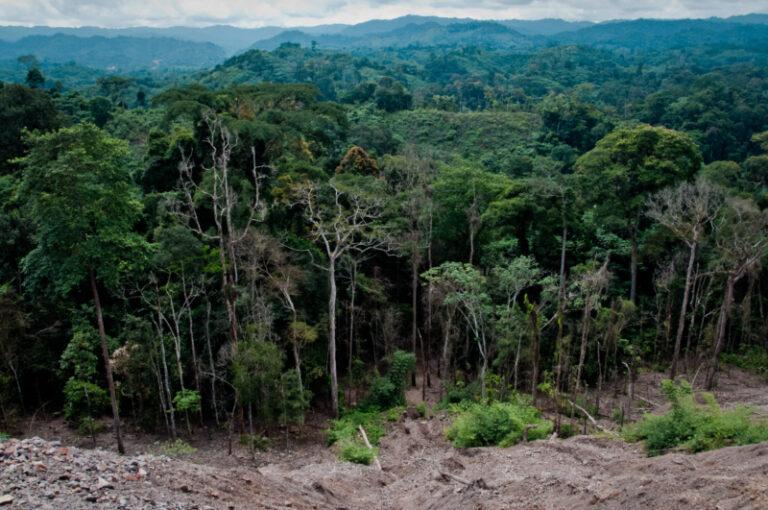In a world where the delicate balance of nature shapes the very essence of our existence, the concept of environmental planetary health stands at the forefront of our collective consciousness. It is within the intricate web of ecosystems that we find the profound connection between our well-being and the health of the planet we call home. Join us on a journey of exploration and discovery as we delve into the essence of environmental planetary health, uncovering the profound interplay between the health of our planet and the vitality of all life forms that call it home.
Table of Contents
- Exploring the Interconnectedness of Environment and Planetary Health
- The Impact of Climate Change on Ecosystems and Human Well-being
- Promoting Sustainable Practices for a Healthy Planet
- Empowering Communities to Drive Environmental Change
- Q&A
- In Summary

Exploring the Interconnectedness of Environment and Planetary Health
In a world where the delicate balance between the environment and human health is increasingly under scrutiny, it becomes evident that the two are intricately connected like threads in a finely woven tapestry. The ecosystems that surround us play a crucial role in shaping our health and well-being, influencing everything from the air we breathe to the food we eat. Exploring the interplay between environmental factors and planetary health unveils a web of complexities that highlight the need for sustainable practices and mindful stewardship of our planet.
By delving into the depths of this symbiotic relationship, we uncover the profound impact that environmental degradation can have on human health, ranging from respiratory issues caused by pollution to the spread of infectious diseases due to habitat destruction. Understanding and acknowledging this interconnectedness is paramount in fostering a future where both the environment and planetary health can thrive harmoniously, paving the way for a sustainable coexistence that benefits present and future generations alike.
The Impact of Climate Change on Ecosystems and Human Well-being
In a world where interconnectedness defines our existence, the repercussions of climate change ripple through ecosystems with profound implications for human well-being. The delicate balance of nature is under siege, as rising temperatures, extreme weather events, and habitat destruction threaten the resilience of our planet’s intricate web of life.
The consequences of this ecological turmoil extend beyond the realm of ecosystems, directly impacting human health and prosperity. From food security challenges to the spread of infectious diseases, the implications of environmental degradation on our well-being are far-reaching. As we navigate the intricate dance between nature and civilization, the imperative to foster sustainable practices and preserve biodiversity has never been more urgent. Let’s take a stand for the health of our planet and the well-being of all its inhabitants.
Promoting Sustainable Practices for a Healthy Planet
In today’s world, it’s crucial to embrace sustainable practices to safeguard our precious planet for future generations. By making conscious choices in our daily lives, we can contribute to a healthier environment and a more sustainable future. One way to promote eco-friendly habits is by reducing single-use plastics, opting for reusable alternatives, and supporting businesses that prioritize environmental responsibility.
Furthermore, engaging in practices such as composting organic waste, conserving water, and supporting local farmers can have a significant impact on reducing our carbon footprint. It’s essential to educate ourselves and others about the importance of biodiversity, conservation, and the interconnectedness of all living beings. Together, through small yet impactful actions, we can work towards a greener, healthier planet for all.
| Benefits of Sustainable Practices: |
|---|
| 1. Environmental Preservation |
| 2. Resource Conservation |
| 3. Pollution Reduction |

Empowering Communities to Drive Environmental Change
In our pursuit of a greener and healthier planet, the power lies within our communities to enact meaningful environmental change. By fostering a collective sense of responsibility and action, we can create a ripple effect that transcends boundaries and redefines our relationship with the Earth. Through collaborative efforts and shared visions, we have the opportunity to safeguard our environment for future generations.
Key Points to Consider:
- Embrace sustainable practices in daily routines.
- Engage in community clean-up initiatives.
- Advocate for eco-friendly policies at local levels.
As we embark on this journey towards environmental stewardship, let us remember that each small act contributes to a larger impact. Together, we can nurture a planet that thrives in harmony with nature, where every individual plays a vital role in preserving the delicate balance of our ecosystems.
Here is a simple table illustrating the impact of community-driven environmental actions:
| Action | Impact |
|---|---|
| Recycling efforts | Reduces landfill waste and conserves resources |
| Planting trees | Helps combat climate change and improve air quality |
| Promoting sustainable practices | Encourages long-term environmental conservation |
A: The environment and planetary health are intricately linked, with the condition of our planet directly impacting human well-being. Environmental degradation, such as climate change, pollution, and loss of biodiversity, poses significant risks to our health and the health of ecosystems worldwide.
Q: How does planetary health affect individuals on a personal level?
A: Planetary health influences individuals on a personal level through factors like air quality, water purity, and access to healthy food. Poor environmental conditions can lead to a higher incidence of diseases, allergies, and other health issues among populations.
Q: What are some ways in which individuals can contribute to improving planetary health?
A: Individuals can contribute to improving planetary health through lifestyle changes such as reducing waste, conserving energy, supporting sustainable practices, and advocating for environmental protection policies. Small actions collectively have the power to make a big difference in safeguarding the health of our planet.
Q: Why is it important for society to prioritize environmental sustainability?
A: Prioritizing environmental sustainability is crucial for ensuring the well-being of current and future generations. By preserving natural resources, reducing pollution, and mitigating climate change, we can create a healthier and more resilient planet for all living beings to thrive in.
Q: How can education play a role in promoting planetary health awareness?
A: Education plays a fundamental role in promoting planetary health awareness by raising consciousness about environmental issues, fostering a sense of responsibility towards nature, and empowering individuals to make informed choices that benefit both personal and planetary well-being. Through education, we can inspire positive change towards a more sustainable future.
In Summary
As we navigate the intricate web of environmental planetary health, let’s remember that our actions have the power to shape the world around us. By fostering a deeper connection with nature and embracing sustainable practices, we can safeguard the health of our planet for future generations. Together, let’s embark on a journey of stewardship and preservation, where each choice we make contributes to a brighter and healthier tomorrow. Join us as we continue to explore, learn, and inspire positive change for the well-being of our planet and all its inhabitants. May our collective efforts ripple outwards, creating a wave of harmony and balance that reverberates across the globe. Let’s walk hand in hand towards a future where environmental planetary health thrives, and the beauty of our world endures for eternity. Embrace the challenge, embrace the change, and let’s write a new story of hope and sustainability together.



0 Comments